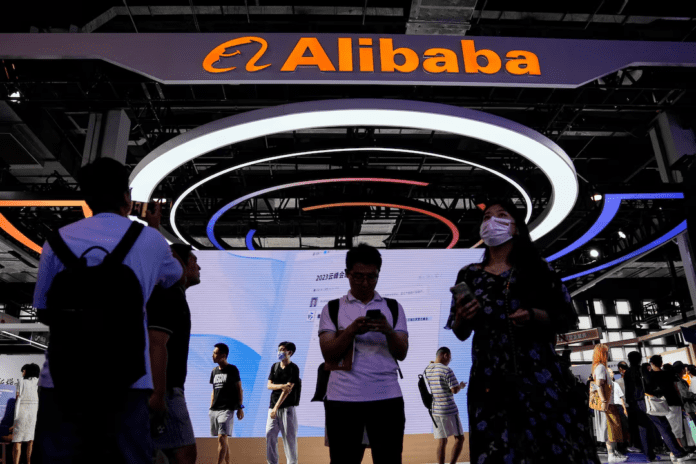
Chinese tech giant Alibaba has launched a new version of its Qwen 2.5 artificial intelligence (AI) model, asserting that it surpasses the highly acclaimed DeepSeek-V3.
The release of Qwen 2.5-Max on Wednesday, coinciding with the first day of the Lunar New Year—a time when most Chinese citizens are on holiday—highlights the intense competition within the AI sector, particularly in response to DeepSeek’s rapid rise over the past three weeks.
In a statement posted on its official WeChat account, Alibaba’s cloud unit claimed that Qwen 2.5-Max outperforms leading AI models, including OpenAI’s GPT-4, DeepSeek-V3, and Meta’s Llama-3.1-405B, across a wide range of benchmarks.
“Qwen 2.5-Max outperforms … almost across the board GPT-4o, DeepSeek-V3 and Llama-3.1-405B,” Alibaba’s cloud unit said in an announcement posted on its official WeChat account
This announcement underscores the growing rivalry not only between Chinese and international AI firms but also among domestic competitors.
DeepSeek, a Chinese AI startup, has recently made waves in the tech industry with the release of its DeepSeek-V3 model on January 10 and the R1 model on January 20. These developments have sent shockwaves through Silicon Valley, causing tech stocks to plummet as investors question the high development and operational costs of leading U.S. AI firms compared to DeepSeek’s reportedly low expenses.
The success of DeepSeek has also spurred Chinese tech companies to accelerate their own AI advancements. Just two days after DeepSeek-R1’s launch, ByteDance, the owner of TikTok, rolled out an update to its flagship AI model, claiming it outperformed OpenAI’s o1 in the AIME benchmark test, which evaluates AI models’ ability to understand and respond to complex instructions.
This move mirrored DeepSeek’s earlier claims that its R1 model rivaled OpenAI’s o1 on multiple performance metrics.
DeepSeek’s Impact on the AI Landscape
DeepSeek’s predecessor, the DeepSeek-V2 model, sparked a price war in China’s AI market after its release in May 2023. As an open-source model with an unprecedented low cost of just 1 yuan ($0.14) per 1 million tokens (units of data processed), it forced competitors like Alibaba to slash prices by up to 97% on their own AI offerings. Other major Chinese tech firms, including Baidu and Tencent, followed suit with similar price reductions.
Despite the price competition, DeepSeek’s founder, Liang Wenfeng, emphasized in a rare interview with Chinese media outlet Waves in July 2023 that the company’s primary focus is on achieving artificial general intelligence (AGI). AGI, as defined by OpenAI, refers to autonomous systems that surpass human capabilities in most economically valuable tasks.
Liang contrasted DeepSeek’s lean, research-focused operations—staffed largely by young graduates and doctoral students from top Chinese universities—with the high costs and rigid structures of larger tech companies.
“Large foundational models require continued innovation, and tech giants’ capabilities have their limits,” Liang stated, suggesting that smaller, more agile companies like DeepSeek are better positioned to drive future advancements in AI.
As the AI race intensifies, Alibaba’s latest release signals its determination to maintain a competitive edge in the rapidly evolving industry. Meanwhile, DeepSeek’s disruptive innovations continue to challenge both domestic and international players, reshaping the global AI landscape. With the stakes higher than ever, the coming months are likely to see further breakthroughs and rivalries in the quest for AI supremacy.
From Reuters




![SHA Suspends Dozens of Health Facilities Over Alleged Fraud [LIST]](https://citymirror.ke/wp-content/uploads/2024/12/image-14-218x150.png)

